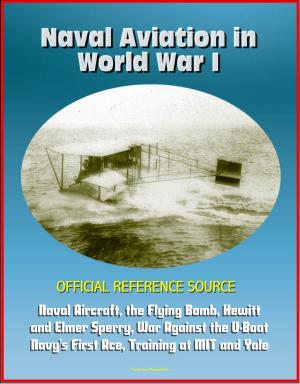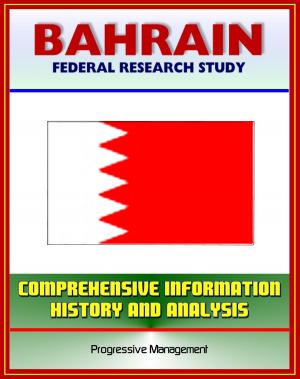Information Sharing Between the U.S. Department of State and the U.S. Army: Using Knowledge Management (KM) Technology and Tools to Bridge the Gap - Covering Interagency Cooperation, Wikileaks Impact
Nonfiction, History, Military, Strategy, Social & Cultural Studies, Political Science, International| Author: | Progressive Management | ISBN: | 9780463055281 |
| Publisher: | Progressive Management | Publication: | April 25, 2018 |
| Imprint: | Smashwords Edition | Language: | English |
| Author: | Progressive Management |
| ISBN: | 9780463055281 |
| Publisher: | Progressive Management |
| Publication: | April 25, 2018 |
| Imprint: | Smashwords Edition |
| Language: | English |
This excellent report has been professionally converted for accurate flowing-text e-book format reproduction. This work examines the information sharing between the U.S. Department of State and the U.S. Army when planning overseas operations. It looks at examples of collaboration and identifies where knowledge management tools and systems were used and where they could be used in the future. The focus of the study is on identifying barriers to use and incremental first steps that could be taken given the background of the problem of interagency knowledge sharing.
The focus of the conclusions and recommendations is on technical and easily implemented steps that could be taken by both the U.S. Army and the Department of State to change existing methods of knowledge sharing by using new technology or adapting current practices and processes at different levels
CHAPTER 1 INTRODUCTION * Overview * Primary Research Question * Secondary Research Questions * Assumptions * Definitions * Limitations * Delimitations * Conclusion * CHAPTER 2 LITERATURE REVIEW * Interagency Cooperation * Knowledge Management as a Discipline * Knowledge Sharing Technologies used at DoS and the Army * Historical Examples of Collaboration * CHAPTER 3 RESEARCH METHODOLOGY * Overview * Possible Sources of Bias * CHAPTER 4 ANALYSIS * Current Uses and Value of KM Tools * Current Relationships between DoS and the Army * Possible Specific Regions and Missions for KM Tool Use * Barriers to KM Use: U.S. Army and DoS Culture * Information Sharing after WikiLeaks * Knowledge Management Challenges * Historical Analysis of Integrated Planning * Building Trust by Focusing on the People Part of KM * Competing Systems and Information Overload * Measuring Progress on Cooperation and KM Tool Used * CHAPTER 5 CONCLUSIONS AND RECOMMENDATIONS * Findings * Recommendations * Summary of Conclusions and Recommendations * Additional Research
This excellent report has been professionally converted for accurate flowing-text e-book format reproduction. This work examines the information sharing between the U.S. Department of State and the U.S. Army when planning overseas operations. It looks at examples of collaboration and identifies where knowledge management tools and systems were used and where they could be used in the future. The focus of the study is on identifying barriers to use and incremental first steps that could be taken given the background of the problem of interagency knowledge sharing.
The focus of the conclusions and recommendations is on technical and easily implemented steps that could be taken by both the U.S. Army and the Department of State to change existing methods of knowledge sharing by using new technology or adapting current practices and processes at different levels
CHAPTER 1 INTRODUCTION * Overview * Primary Research Question * Secondary Research Questions * Assumptions * Definitions * Limitations * Delimitations * Conclusion * CHAPTER 2 LITERATURE REVIEW * Interagency Cooperation * Knowledge Management as a Discipline * Knowledge Sharing Technologies used at DoS and the Army * Historical Examples of Collaboration * CHAPTER 3 RESEARCH METHODOLOGY * Overview * Possible Sources of Bias * CHAPTER 4 ANALYSIS * Current Uses and Value of KM Tools * Current Relationships between DoS and the Army * Possible Specific Regions and Missions for KM Tool Use * Barriers to KM Use: U.S. Army and DoS Culture * Information Sharing after WikiLeaks * Knowledge Management Challenges * Historical Analysis of Integrated Planning * Building Trust by Focusing on the People Part of KM * Competing Systems and Information Overload * Measuring Progress on Cooperation and KM Tool Used * CHAPTER 5 CONCLUSIONS AND RECOMMENDATIONS * Findings * Recommendations * Summary of Conclusions and Recommendations * Additional Research















